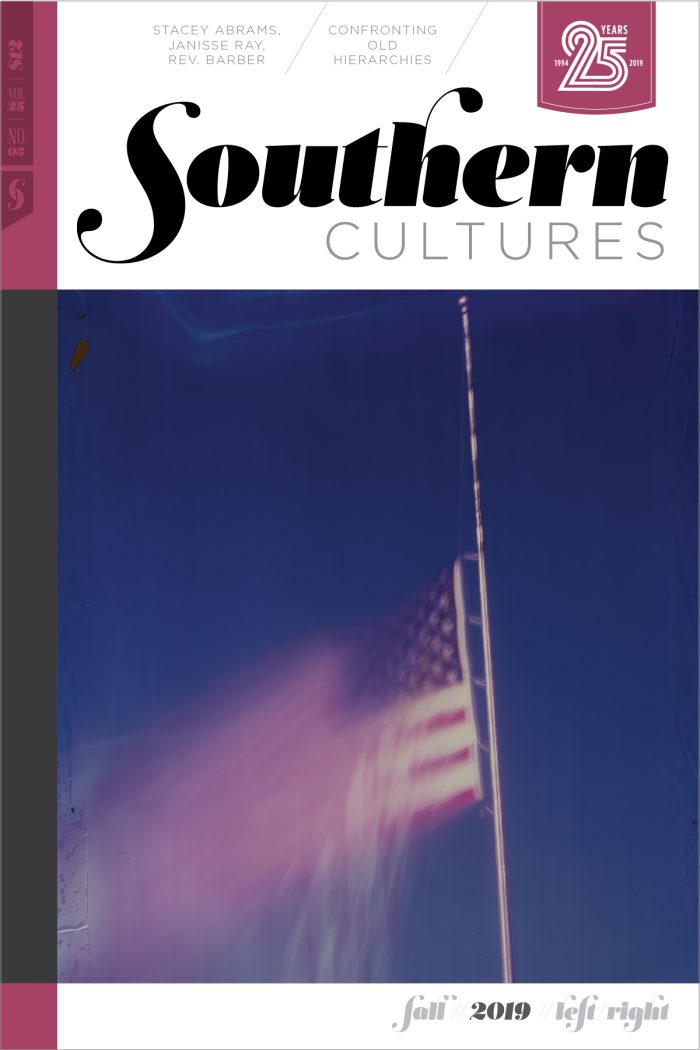“Right field, where perennial All-Star Hank Aaron played, was, first, the site of the Sermon on the Mount and, later, Golgotha.”
For twenty-five years, Southern Cultures has been the premier forum for interdisciplinary, public-facing scholarship on the American South. I’m honored to serve as a guest editor for one of the four twenty-fifth anniversary issues, not least because it was in Southern Cultures that I published my first piece of scholarship. It was an essay in the Summer 2000 issue titled “The Strange Career of Atticus Finch,” and it examined the evolving politics surrounding the hero of Harper Lee’s beloved, Pulitzer Prize–winning novel, To Kill a Mockingbird. I had written the piece for a seminar in graduate school, and even though it was one of the most fun and interesting experiences of what was otherwise a pretty gloomy, anxiety-filled graduate career, I had felt compelled to put the essay aside. It didn’t fit into my broader research agenda, which was taken up largely with traditional political history—the kind that seemed to my callow graduate student self like “real history,” or at least the kind that might get me a job, a prospect that seemed increasingly unlikely at the time. Working on an essay about To Kill a Mockingbird—a book that most scholars, following Flannery O’Connor’s lead, dismissed as merely “a child’s book”—seemed like a waste of time.


